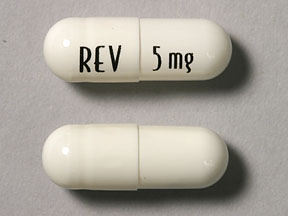
Recently Diagnosed or Relapsed? Stop Looking For a Miracle Cure, and Use Evidence-Based Therapies To Enhance Your Treatment and Prolong Your Remission
Multiple Myeloma an incurable disease, but I have spent the last 25 years in remission using a blend of conventional oncology and evidence-based nutrition, supplementation, and lifestyle therapies from peer-reviewed studies that your oncologist probably hasn't told you about.
Click the orange button to the right to learn more about what you can start doing today.
- You are here:
- Home »
- Blog »
- Multiple Myeloma »
- Multiple Myeloma Relapsed- 3 Year Remission Post ASCT- Thoughts?
Multiple Myeloma Relapsed- 3 Year Remission Post ASCT- Thoughts?
Hi David- I just found out my myeloma is back- my multiple myeloma relapsed. My M-protein has reappeared after a 3 year remission. Just had a CT scan and waiting for the results to see if there’s bone involvement.
Hi David- I’M feeling a bit overwhelmed as I have gone the natural route and thought I had things under control but my MM came back just as my onc. said it would. Not sure what way to turn now.
The treatment plan they are proposing looks awful. They would be using Revlimid this time along with immunotherapy and two steroids and other drugs for side effects. Last thing I wanna do to my body but afraid I will give him because of fear.
As I have an aggressive form it spreads very quickly so don’t have too much time to figure things out.
I’m considering heavy dose Cannabis for a few months after speaking to a woman in Vancouver who had healed her own cancer plus many others and is very well-known.
Very expensive though and not too much money to play with. Any ideas would be greatly appreciated. Lucy
Hi Lucy,
- MM Survivor
- MM Coach
- Director PeopleBeatingCancer
Recommended Reading:
- Multiple Myeloma Cure?- Prayer, Religiosity, Spirituality
- Multiple Myeloma Diagnosis- Oncologists vs. Patients
- Multiple Myeloma Diet- Pomegranate juice (PGJ)- Antiangiogenic, Integrative
Cannabinoids synergize with carfilzomib, reducing multiple myeloma cells viability and migration
” Herein, we also found that the CBD and THC combination is able to reduce expression of the β5i subunit as well as to act in synergy with CFZ to increase MM cell death and inhibits cell migration. In summary, these results proved that this combination exerts strong anti-myeloma activities…”
Efficiency and Tolerability of Induction and Consolidation Therapy with Arsenic Trioxide/Bortezomib/Ascorbic Acid/Dexamethasone (ABCD) Regimen Compared to Bortezomib/Dexamethasone (BD) Regimen in Newly Diagnosed Myeloma Patients
“Results: The response rates (above VGPR) were 74.1% and 32.8% in the ABCD- and BD-treated groups, respectively (P = 0.000). Compared to BD regimen, ABCD regimen significantly improved PFS (P = 0.026) and OS (P = 0.000) in newly diagnosed patients.
Patients with a high tumor burden, low or standard risk, and without auto-HSCT seemed to especially benefit compared to the same group with BD regimen. ABCD also showed better tolerability with lower bone marrow suppression (P = 0.026). Furthermore, complete response or near CR after induction therapy was a good prognostic factor for ABCD-associated OS and PFS.
Conclusion: ABCD is an effective and tolerable regimen compared with BD regimen in newly diagnosed myeloma patients. ABCD regimen could be an economical, effective, and tolerable choice in low- and standard-risk patients.”



